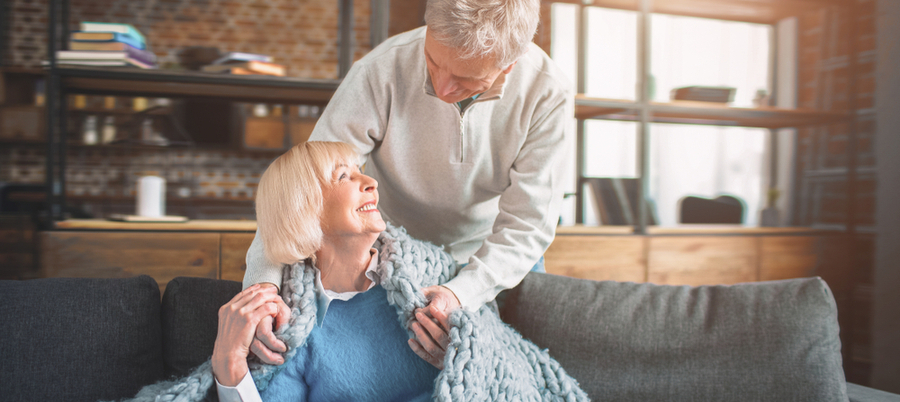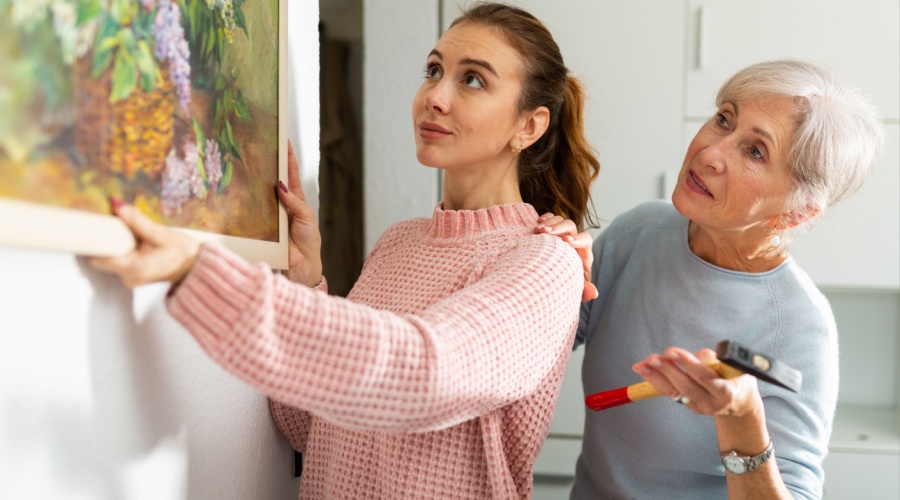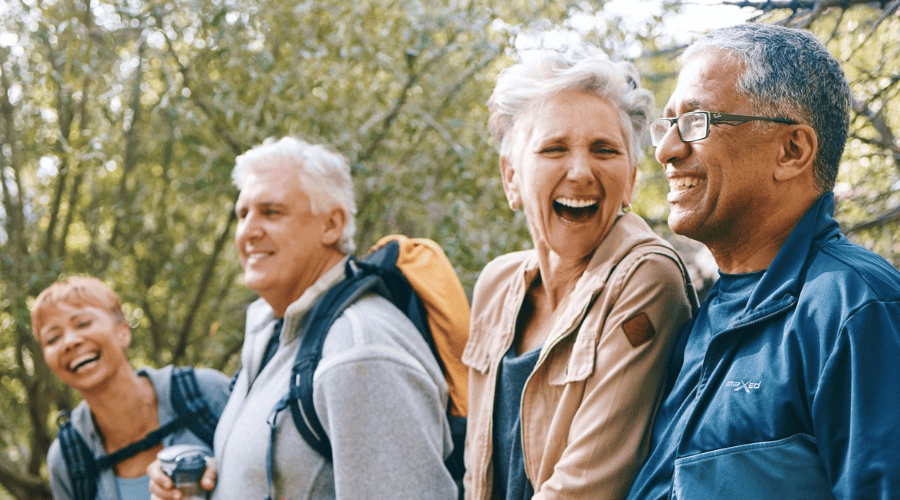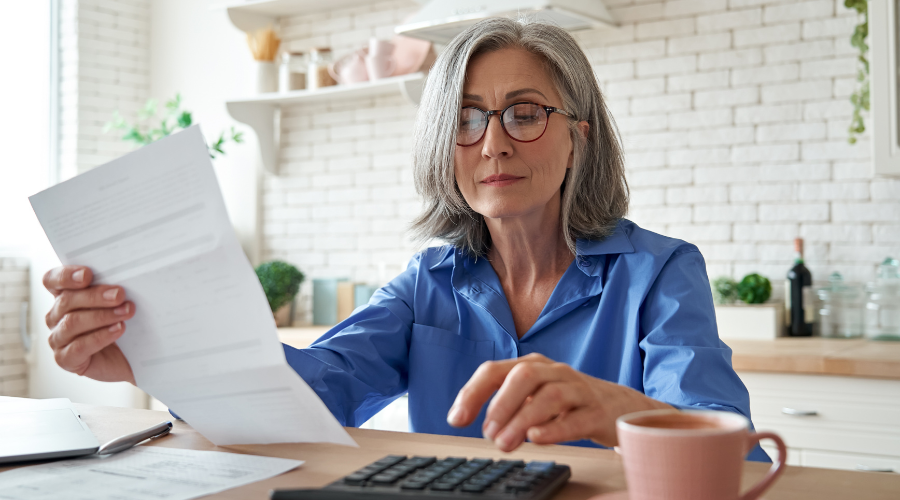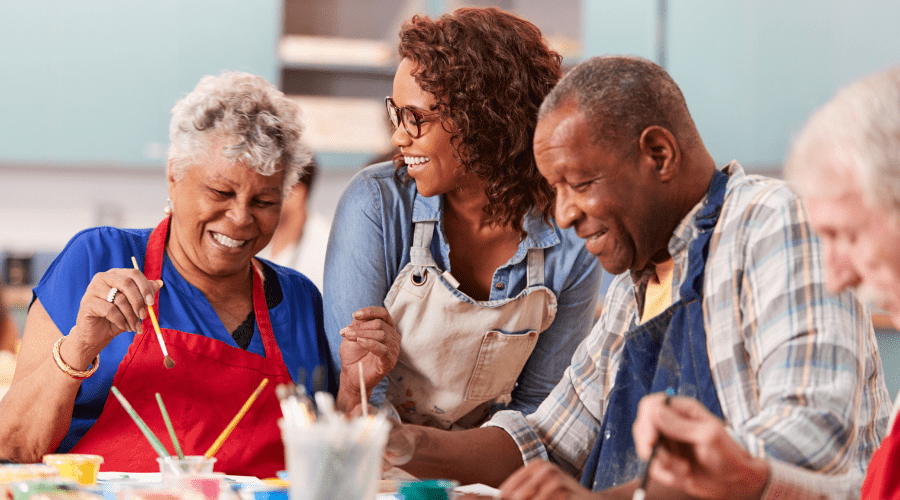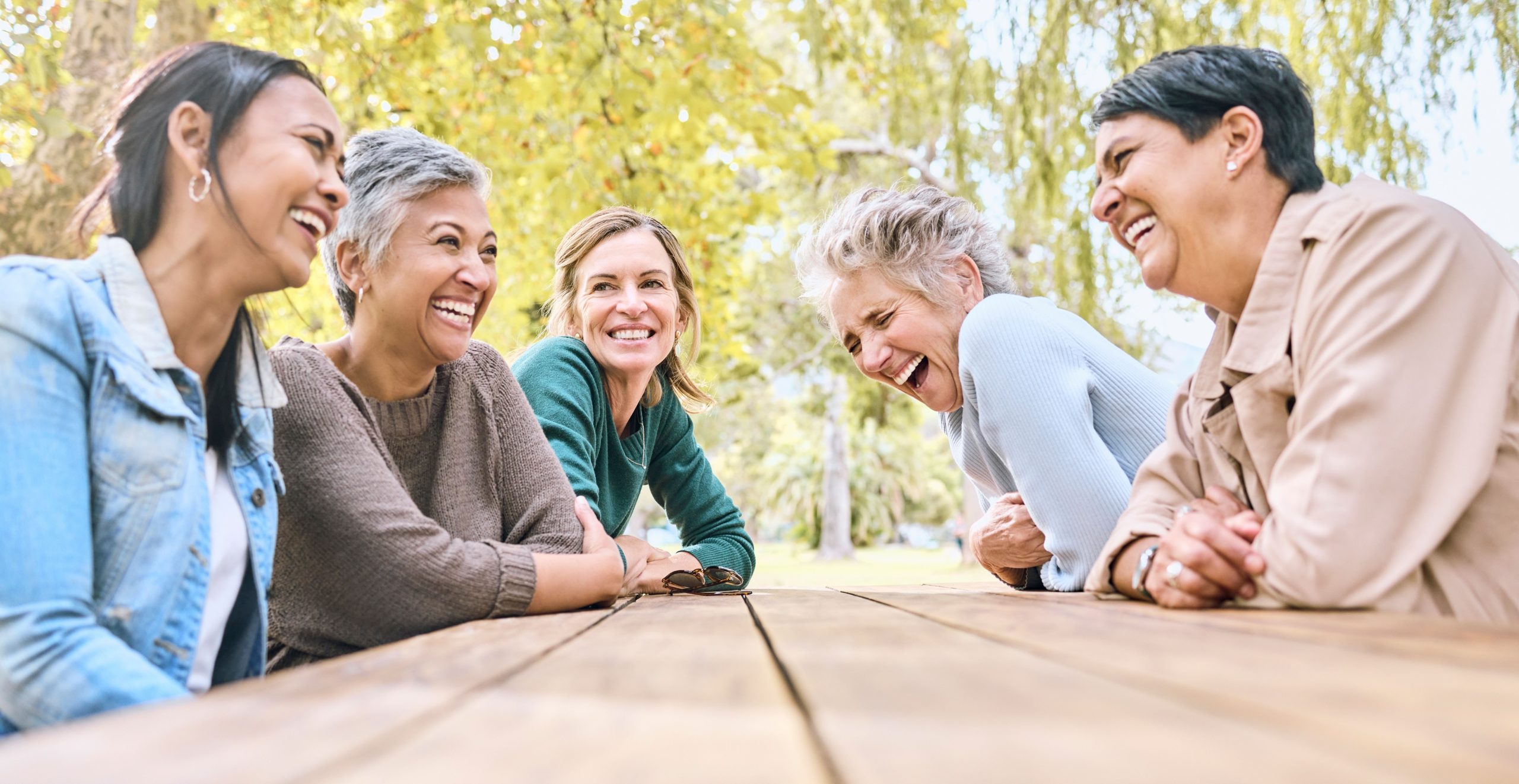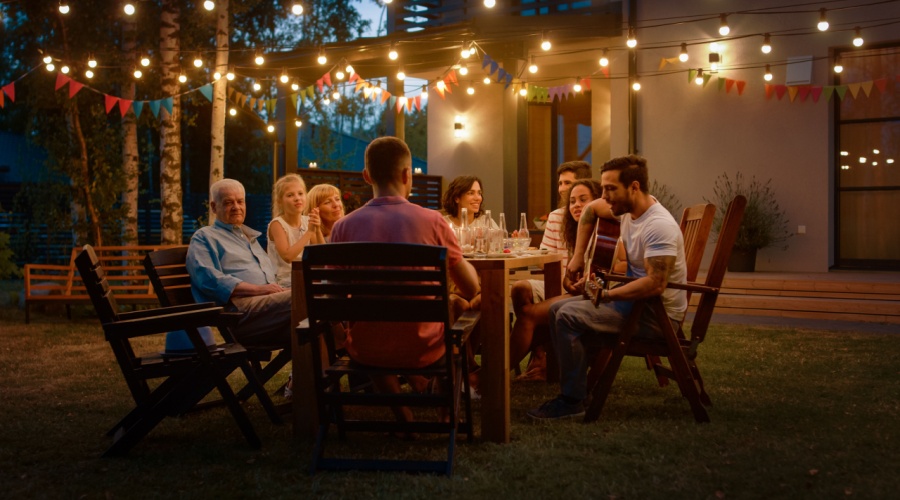Tips for prevention of home accidents
They say the safest place on earth is your home. Your home is not just your personal sanctuary, but also a safe haven with an unparalleled sense of security and comfort. It is not surprising then that a whopping 93% of Canadians prefer aging in place. From feeling secure and independent, and loving their homes, to location convenience and neighbourhood familiarity, they cite various reasons for wanting to age in place.
However, if you or your loved ones are retirees or elderly and living at home alone, you may want to be mindful of some of the risks involved:
- Home accidents: According to Statistics Canada, 63% of injuries involving older adults (65 years plus) are the result of a fall. 55% of the falls take place at home, while walking around or performing daily chores.
- Crimes and scams: Households with retirees or older adults may be more vulnerable to thefts, house breaks or scams. Generally speaking, the elderly tend to become easy prey for robbers and fraudsters.
If any of these potential risks impact your physical or emotional well-being or lead you to a situation where you need day-to-day assistance, your living at home arrangements may become expensive and impractical. Depending on your healthcare plans and insurance, any out-of-pocket medical expenses could also start eating into your retirement funds. Hence, prevention of home accidents and safeguarding against criminals should be among your top priorities.
A few home security and safety tips will help you simplify your day-to-day activities and offer enhanced security while living at home. Read on to know more about the safety precautions at home that can help you avoid accidents.
Home safety tips for older adults living at home
Accidents occur at times and places that you least expect them to. Moreover, with age, your movements and reflexes may go through a natural regression, making it difficult for you to react to potential hazards as quickly as you could in your younger days.
Enhance the quality of your life by implementing some of these personal safety tips at home.
Fire hazards: Fires can start and spread very quickly and unless detected in time, the damage to life and property can be devastating. Take all the necessary safety precautions to prevent house fires:
- Be very careful around open fires and use a surround to add extra protection to your fireplace or heaters.
- Avoid placing flammable items near the fire – if you use a chimney, or flue, have it swept and inspected at least once every year.
- Position your portable heaters or candles away from the furniture and drapes.
- Be extra cautious while cooking, especially while deep-frying items that contain fat.
- Fix approved smoke detectors on each floor and try to ensure that your smoke alarm connects through the main electrical line – do not block any grills or air vents or place items in front of them.
- Get your appliances serviced at regular intervals.
- If you suspect a gas leak, turn off the supply, throw open your windows and call your utilities provider immediately.
- In case of fire, know which escape routes you can use – step out, stay out and call the fire department.
Electrical safety: Many home accidents occur due to negligence in electrical safety. Here are some safety tips for the elderly:
- As much as you may favor some of your old appliances, do not use them if they have worn or damaged flexes.
- If you use electric blankets, get them serviced at regular intervals.
- Do not overload your electric sockets for the sake of easy access.
- Be extra careful while using power tools. Consider upgrading to Ground Fault Circuit Interrupter (GCFI) outlets for added protection against shocks or other electrical hazards.
- If you stay in an older home, get your electrical wiring and circuit boards inspected by a qualified electrician once every 4 to 5 years.
Kitchen safety: The two most important aspects of kitchen safety are planning your workspace and storing your cooking tools and appliances in appropriate locations.
- Try to keep heavy utensils or items of daily use in easily accessible cabinets or storage areas – bending awkwardly could lead to a pulled muscle or tendon, whereas climbing step stools or ladders could accidentally cause a fall.
- Be cautious while handling kettles, sharp knives, or hot pan handles.
Other general home safety tips: Here are some other tips that will be particularly useful for the elderly:
- Every once in a while, you hear about an older adult slipping or falling in the bathroom and hurting themselves badly. Make sure that you use slip-resistant mats, and install grab bars near the bathtub, shower stall and toilet -install shower chairs or raised toilet seats, if that will help make you more comfortable.
- Check your home for any loose railings or hardware and ensure that they are sturdy and tightly fastened.
- Secure the loose ends of any rugs or carpets in order to avoid accidentally tripping over them.
- Candles look pretty and add a lot of warmth and charm to the home, but don’t leave them lit at bedtime or when you are not at home.
- Wear appropriate clothes while cooking or working with tricky gadgets or appliances – loose, flowing sleeves could accidentally catch fire, or get caught in a working tool and lead to injuries.
- Exercise extra caution and follow the manufacturer’s instructions while using any chemicals, bleaches, cleaning agents or adhesives.
- Consider installing an emergency bell or button that initiates a call to 911 or alerts your designated emergency contact – when you are living alone, a medical alert system could be highly effective in dealing with unforeseen circumstances.
- Declutter your home, clip up loose wires, and keep the floors and stairs clear of any objects that you may accidentally trip over.
Safety tips to protect against external threats
In addition to safety precautions at home to avoid accidents, here are a few aspects that you can address around the home to protect yourself from the dangers outside:
- Remove snow, ice and leaves from your steps and driveway. If this is difficult for you to do personally, consider having a family member or friend help you out, or hire the services of a professional.
- Stow away your garage tools or gardening equipment as soon as you finish working with them.
- Keep your entrance well-lit, ensure your door locks are secure, and as much as possible, do not open the door to strangers.
- Watch out for scammers posing as tax agents, utilities suppliers, bank personnel or other government authorities – do not give out any personal information over the phone, especially if you suspect the authenticity of the caller.
- Invest in a quality home alarm system that keeps away prowlers and burglars and initiates timely alerts in case of any potential threats.
The aftermath of a home accident: how will it impact you and those around you?
Following a few simple safety tips for your home will go a long way in protecting older adults from tripping, falling, or hurting themselves in a home accident. While some mishaps may be minor, others could have long-term side effects, disabilities, or even life-threatening consequences.
For example, a joint dislocation, fracture or injury to the spine may take a few months to heal, and your provincial insurance program may cover most of your medical expenses. However, a long-term or permanent disability may lead to many more expenses and adjustments that you have not accounted for:
- Mobility aids, such as wheelchairs, crutches, or scooters.
- Devices for hearing loss or visual impairment, or other electrical assistive devices for cognitive impairments.
- Home modifications, such as installation of chair lifts, specialized grips and handles, ramps, widening of doorways, bathroom or kitchen modifications, adaptive light switches, and so on.
In addition to physical and emotional stress, a home accident could cause a big dent in your retirement finances, which in turn could have a huge impact on you and your family. Hence, prevention of home accidents is a critical aspect of aging in place.
Stay safe at home, now and in the years to come
Following some basic home safety and security tips is your best bet to avoid accidents and be able to live independently at home for years to come. However, aging in place safely also means you may have to invest in certain devices or home modifications that you may not have originally budgeted for. Similarly, despite all the safety precautions at home, it is possible that you encounter a situation that requires some financial outlay.
Whether it is preventative or reactive, if you need to meet certain expenses without dipping into your fixed income or retirement finances, don’t worry; you have other options. If you are 55 years or older and own your home, the CHIP Reverse Mortgage® could be the solution for you.
- Turn some of your home equity into cash: Borrow up to 55% of the value of your home tax-free, with no principal or interest repayment until you decide to sell the home or move out.
- Use your money your way: Not only is the reverse mortgage structured around your needs and preferences, but you can use the cash you receive for any kind of expense. Invest in a stair lift or a step-in bath, renovate your bathroom or kitchen for better accessibility, or fund your out-of-pocket health care expenses, all while retaining the ownership of your home.
- No impact on your retirement finances: Enjoy a stress-free way of improving your financial liquidity, without impacting your retirement finances. A reverse mortgage does not impact your Old Age Security (OAS), Guaranteed Income Supplement (GIS) benefits, or income from Registered Retirement Savings Plan (RRSPs).
Want to know more about how the CHIP Reverse Mortgage could fund your unexpected expenses in the retirement years? Need additional safety tips for your home? Call 1-866-758-2447, and one of our professional experts will be happy to answer all your questions. You can also use our reverse mortgage calculator to get a free estimate to see how much tax-free cash you could access.

